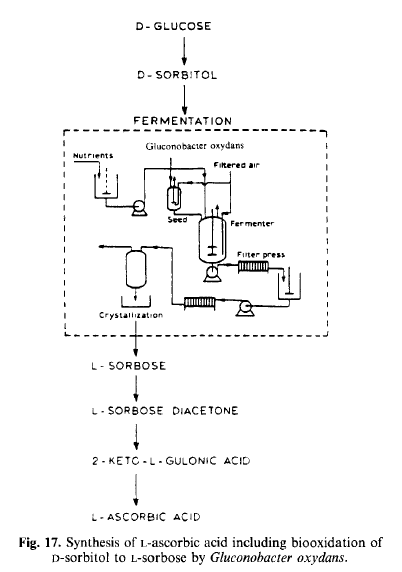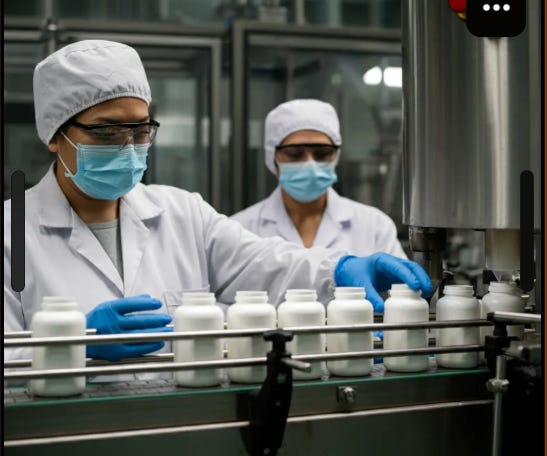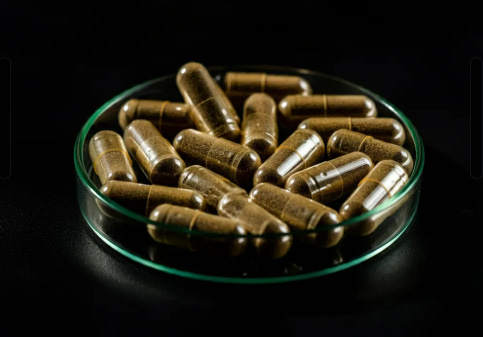The Toxic Truth About Supplements
The debate surrounding vitamins and minerals often centers on a critical question: is there a meaningful difference between nutrients derived from food and their synthetic counterparts produced in laboratories?
I’ve written on this subject before, and I received some criticism. But understand, it’s better to change course as we find truth than to stubbornly cling to outdated and possibly dangerous ideas.
Supplement ingredients don’t come from whole vegetables and fruits. In fact, they’re no more natural than white flour or pharmaceuticals. I want to point this out as my blog is about finding the best and most wholesome solutions so that you can learn and become healthy again.
Synthetic Supplements
The supplement industry is a multi-billion dollar behemoth. There are 75,000 different types of dietary supplements currently sold in the US, and it’s estimated that more than 1,000 new products are introduced annually. Many of these prove to be detrimental to health because most of them are of artificial origin and undergo significant processing and refining in a lab.
That’s important to know because approximately one-half of Americans use supplements in some form, and 79 percent take them daily. Yet no supplements currently on the market are FDA-regulated or have undergone any clinical testing before availability for consumption.
So why aren’t pharmaceutical drug makers concerned about this? They take on the costly work of running intensive drug trials and conducting post-market surveillance. Because in reality, even though regulations on pharmaceuticals and nutraceuticals are vastly different, the companies creating them are often one and the same.
Increasingly, Big Pharma and Big Herb are indistinguishable. The very same mega-companies that make drugs—Pfizer, Unilever, Novartis, Merck, GlaxoSmithKline and other big pharmaceutical firms—also make or sell supplements. Sure, some small companies are still in the mix, but they represent a small fraction of the total sales in the $39 billion-a-year supplement industry.
When you realize what’s in these supplements, you’ll see the connection:
Vitamin A: Made from Retinyl Palmitate. Its MSDS says it’s so dangerous to women and pregnant mothers that there is a “Danger Reproductive Toxicity” warning on it.
Vitamin E: Extracted from rancid and highly unhealthy vegetable oils (often soybean, due to low costs).
Vitamin D3: Used in rat poison. The MSDS states this chemical harms bones and kidneys, which is the opposite of what we’ve been told.
Vitamin B1: Known as thiamine and made from hydrochloric acid, acetone, ammonia, and coal tar to form thiamine hydrochloride or thiamine mononitrate.
Vitamin B2: Synthetic and is quickly expelled, akin to a toxic substance
Vitamin B3: Nicotinamide Riboside, according to the University of Missouri, can lead to breast cancer, then metastases to the brain.
Vitamin B5 – Formaldehyde and isobutyraldehyde are used to make pantothenic acid, the crystalline synthetic form of vitamin B5.
Vitamin B12 (Cyanocobalamin): The MSDS, under “hazard information”” says this chemical can cause cancer. Cyanide and sodium cyanide are used during the manufacturing process, and their MSDS says they should not be consumed as food or drug as they're obviously poisons.
Calcium: The majority of the calcium in supplements is in a highly unnatural form and is not absorbed well. What gets into the body runs free in the blood, contributing to calcified arteriosclerosis. Men taking 1,000 mg/daily of calcium have a 20% greater risk of total cardiovascular disease death (JAMA Internal Medicine).
Vitamin C: A synthetic ascorbic acid, and from China. The MSDS shows it should not be used as food or drug, only as a laboratory chemical. China pioneered a two-step fermentation process for synthesizing vitamin C in the 1960s.

What Are Isolated Supplements?
Every second, our bodies perform millions of intricate biochemical reactions that rely on a complex network of macro and micronutrients. Food serves as the fundamental code that programs this biology. Each bite of healthy food can either upgrade or downgrade our biological health, as it provides the necessary nutrients. In contrast, processed junk foods often lack these essential factors.
Many people worry about nutrient deficiencies, as modern agricultural practices have significantly depleted soil quality, reducing nutrient content by 20-98% according to the USDA.
Should we address potential nutrient deficiencies with synthetic supplements that may have unintended health consequences, or should we prioritize a diet rich in whole foods? Fortified foods, such as refined cereals, breads, milk, and meal replacement shakes, are heavily supplemented with synthetic vitamins and are not a reliable source of nutrition. It's best to minimize consumption of these products.
Try to eat a variety of greens, dairy (cheese, yogurt, eggs), meat and healthy fats. I use various loose herbs (nettle, raspberry, oatstraw, alfalfa, rosehips—all very nutrient rich—green powders (chlorella, moringa, alfalfa, grass juices, kelp powder) and so on to supplement my diet. I’ll also drink coconut milk for the potassium and magnesium.
I hope this helps you get a clearer picture of the deception of the supposed “healthy” supplement industry. Stay aware, stay healthy.
Your presence here is greatly valued, and that’s why all our articles are free on this site. But if you've found that the content benefits your life, please consider supporting it through a cost-effective paid subscription. This plays a vital role in covering operational costs and supports the continuation of this independent, unbiased research and journalism work. Thank you!!
If shy about commitments, feel free to leave a one-time tip!





